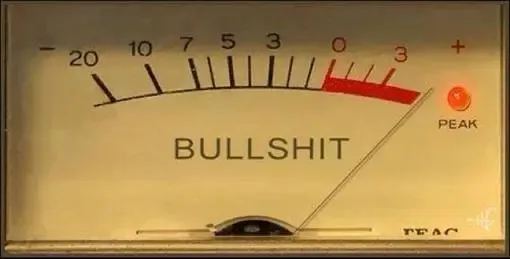Litblog Roundup 35

What do you get when you combine prominent politicians with bullshit detectors? The new Litblog Roundup, that’s what! Litblog Roundup is a bi-weekly overview of topics, trends and highlights from the literary Internet.
Sarah Palin, Poet?
If you want attention these days, it helps to use phrases like “Donald Trump” or “Sarah Palin.” That later character, wow boy does she ever use some phrases like heck. The New Republic has an article that has been making the rounds, about Sarah Palin’s phrases and their perhaps-inadvertently poetic qualities.
“‘You campaign in poetry,’’ the late Mario Cuomo wrote in the pages of the New Republic in 1985. ‘You govern in prose.’’ As one of the most celebrated speechmakers of his era and a respected governor of New York, Cuomo was a master of both the poetry and prose of politics. Sarah Palin, on the other hand [….] her speeches make more sense if formatted as poetry.”
Jeet Heer, Sarah Palin: The Walt Whitman of Wasilla
Bullshit Detectors
Everybody wishes they had a real, mechanical bullshit detector, right? (I’ll give you a hint, it’s the power button on your television.) There’s no, one, bullshit detector to rule them all but there are a pair of handy new tools that can help to stop some of the flow.
A new chrome extension tries to filter out the fake reviews that appear on Amazon . If that’s not enough Amazon-related bullshit-detection for one day, there’s also an upcoming feature that reports on the number of mistakes and “quality issues” within a book .
Terrorism and Literature
Although it didn’t much make the rounds and the conversation about it on Reddit was a little light, I still think that it’s worth mentioning that there’s an intersting article in the Boston Globe this month, about “a curious knot that binds novelists and terrorists.”
“With each new burst of terrorist violence, there inevitably follows a spasm of new articles and books. Many of these works, promising to reveal the terrorist mind, are written by sociologists, political theorists, anthropologists, psychologists, and sundry social scientists. While the best are weighty and worthy, even they fail to capture what Henry James called the “picture of the exposed and entangled state.” Novelists alone challenge not just popular stereotypes but also scholarly analyses about the world and people.”
Robert Zaretsky, Fiction and the fanatic
Diversity in Publishing
It’s a frequent topic of conversation across the literary Internet because it is an obvious problem. In the publishing world, like most other sectors of society, is not diverse enough. Here are just a few of the recent questions that probe the larger issue.
“I didn’t know how to describe Vivienne and Tirzah, the main characters in the manuscript. If I wrote Vivienne as a light-skinned black woman, like me, would I be reinforcing white supremacist beauty standards, subconsciously making it easier for a white reader to sympathize with the character because of skin color? But if I made Vivienne darker skinned, would I be operating out of fear of criticism from the African-American community?”
Morgan Jerkins, Writing While Black: on Cliche, Stereotype, And The Struggle To Describe Blackness
“If you work in book publishing, there is a good chance you are a white, able-bodied, straight woman. This according to a pioneering survey commissioned by Lee & Low Books, a minority-owned publisher of children’s books and Foreword’s 2014 Publisher of the Year.”
Jonathon Sturgeon, Book Publishing Is Almost as White as the Oscars
“I told her I was sick of reading about white boys and dogs,” Dias said, pointing specifically to “Where the Red Fern Grows” and the “Shiloh” series. “‘What are you going to do about it?’ [my mom] asked. And I told her I was going to start a book drive, and a specific book drive, where black girls are the main characters in the book and not background characters or minor characters.”
Brandon Baker, 11-year-old Jersey girl launches 1000 Black Girl Books
“There’s a certain amount of press given to younger women writers at their debut, especially if they’re charismatic and attractive. […] But getting attention for women writers in mid-life or late-life? They tend to “disappear”—even if they never stop writing, attending conferences, holding workshops, giving readings.”
Jeannine Hall Gailey, The Amazing Disappearing Woman Writer